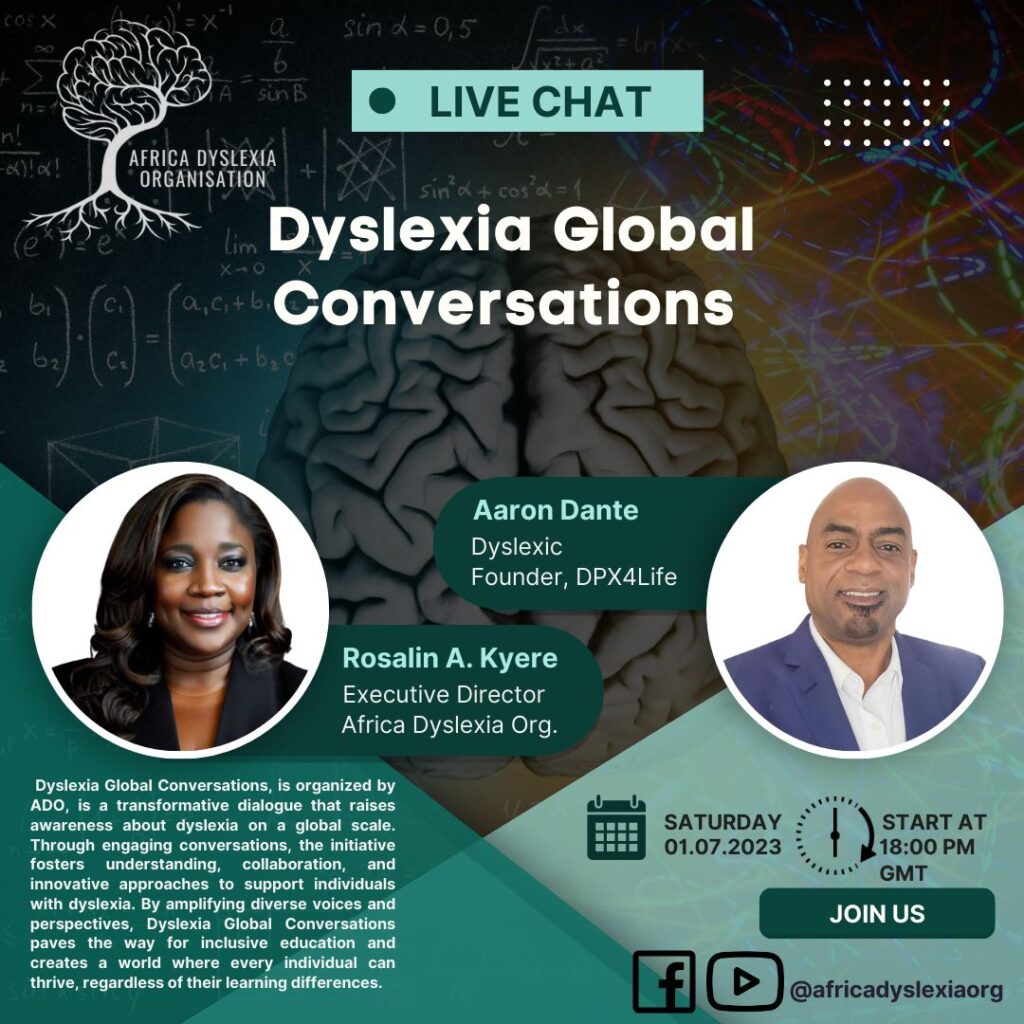
Dyslexia Global Conversations
Our next guest on DGC is Aaron Dante Philips from the USA.
Aaron is not only dyslexic but also the visionary founder of Green Earth Sustainable Solution, Inc (GESS). He is a former Global Executive at Tesla with an impressive track record of 36 years in environmental sustainability, he has successfully built and implemented comprehensive zero waste and sustainability programs from the ground up.
Furthermore, Aaron is the compassionate force behind DPX4Life, an organization dedicated to bringing hope and meaning to less privileged and marginalized individuals.
During his live appearance on DGC, Aaron will courageously share his personal journey of growing up with dyslexia and the challenges he faced, leading him to attend a specialized school due to his slower learning process. Despite these obstacles, he defied all odds and achieved remarkable success in life.
If you are a parent with a child struggling academically, you definitely don’t want to miss this conversation. Likewise, if you are a teacher, this is an invaluable opportunity to gain insights and become an advocate for change within your own educational setting.
Dyslexia Global Conversations, organized by the Africa Dyslexia Organization, is a transformative dialogue that shines a spotlight on dyslexia on a global scale. Through engaging conversations like these, the initiative aims to foster understanding, collaboration, and innovative approaches to support individuals with dyslexia. By amplifying diverse voices and perspectives, Dyslexia Global Conversations paves the way for inclusive education and creates a world where every individual can thrive, regardless of their learning differences.
